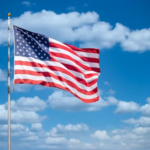
Lagos – Stakeholders in Nigeria’s maritime sector have called for legislation to end marine debris and protect the country’s oceans for future generations.
The call was made during the 2025 annual summit of the Shipping Correspondents Association of Nigeria (SCAN), held in Lagos on Thursday.
They noted that marine debris hampers navigational safety, disrupts port operations, pollutes coastlines, and poses risks to tourism, coastal livelihoods, and public health.
Guest Speaker, Capt. Tajudeen Alao, President of the Nigerian Association of Master Mariners, decried the takeover of potential tourist sites by debris.
Alao warned that the unchecked spread of marine debris was damaging Nigeria’s competitiveness in the maritime sector.
Represented by his Second Vice-President, Capt. Jide Olugunwa, Alao called for legislation supported by the National Assembly.
He further suggested a fine of five million naira for those caught dumping waste illegally into Nigerian waters.
Alao said the summit’s theme, ‘Marine Debris: The Danger Ahead’, underscored the urgency of the crisis facing marine ecosystems and coastal communities.
“The growing scale of marine debris is a socioeconomic threat, endangering the maritime industry and the livelihoods of coastal communities,” he said.
Managing Director of the Nigerian Ports Authority (NPA), Abubakar Dantsoho, said marine debris endangers biodiversity, affecting fish, marine mammals, and seabirds through entanglement and ingestion.
Dantsoho, represented by Capt. Femi Oyewole, said NPA was committed to global and national actions against marine litter to protect marine ecosystems.
He said that marine pollution was not a future threat, but a growing and urgent issue that must be tackled immediately.
“NPA has adopted proactive steps, including operating port reception facilities at all major ports across Nigeria,” he said.
He added that these facilities comply with the International Convention for the Prevention of Pollution from Ships (MARPOL 73/78).
“Specifically, Annex V deals with waste disposal from ships visiting the Ports Authority’s four pilotage districts.

“These facilities handle vessel waste securely and sustainably, including plastics, food waste, hazardous residues, sludges, and bilge water.
“This helps discourage illegal disposal and ensures that all waste is managed in line with national and international standards,” he said.
Dantsoho also said NPA conducts regular clean-up of marine litter and seaweed around port channels and quay areas.
He noted that removing debris and packaging materials will help to protect marine life and improve drainage and vessel movement.
He said such clean-ups ensured uninterrupted navigation and operations within port environments and shipping channels.
Executive Secretary of the Nigerian Shippers Council (NSC), Pius Akutah, called for urgent clearance of inland waterways for smooth vessel movement.
Akutah, represented by Mr Adeshina Sarumi, Deputy Director, Monitoring and Enforcement, said debris and wrecks hinder water transport efficiency.
Managing Director of the National Inland Waterways Authority (NIWA), Mr Bolaji Oyebamiji, urged stakeholders to join efforts in tackling marine debris.
He also stressed the need for more education within coastal communities about the dangers of marine pollution.
Oyebamiji said marine waste was a global issue, not limited to Nigeria alone.
He was represented by NIWA’s Assistant General Manager, Mrs Aisha Eri, who noted that a marine litter action plan was already in place.
She added that the plan involves multiple stakeholders and emphasises shared responsibility in addressing the challenge.
NIWA and other agencies are making efforts, she said, but need coastal residents to stop polluting waterways.
===========









